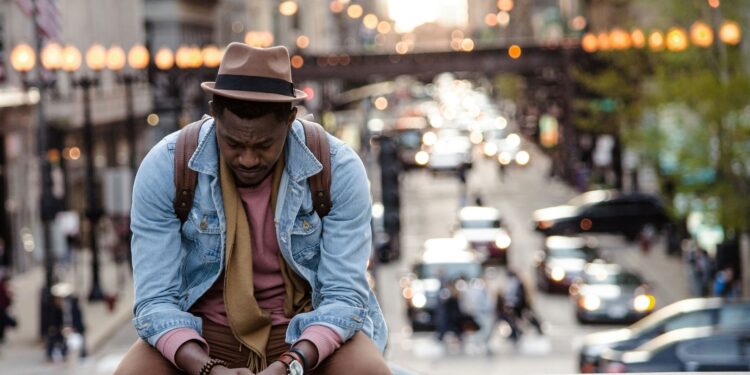Credit: Unsplash/CC0 Public domain
Black adults in the United States suffer sleep problems after being exposed to news about unarmed black individuals killed by police during encounters, according to new findings released today (February 5). In JAMA Internal Medicine by researchers at the Perelman School of Medicine at the University of Pennsylvania.
This problem could compound the risk factors that poor sleep already poses for many chronic and mental health problems, from depression to post-traumatic stress disorder, researchers say.
Researchers conducted two separate analyzes examining changes in sleep duration in the non-Hispanic black population of the United States before and after exposure to such deaths of unarmed black individuals, using data on adult respondents. from the American Behavioral Risk Factor Surveillance Survey (BRFSS) and the American Time Use. Survey (ATUS) and police-involved killing data from the Mapping Police Violence database, a nationally representative sample of 100,000 black adults.
“Exposure” was defined by the county or state of residence of the survey respondent, capturing the myriad ways these events become known to the public, such as watching media coverage or participating in community discussions on the subject. The researchers also examined the impacts of incidents of police killings of unarmed black individuals that were widely covered by national media, examining the sleep durations of respondents living anywhere in the United States before and after such incidents. incidents.
Worsening sleep duration was mainly reflected in an increase in short sleep (less than seven hours per night) and very short sleep (less than six hours per night). Results were specific to exposure to the deaths of unarmed Black individuals during interactions with law enforcement, and no negative impact on sleep health was found for White respondents. In the BRFSS, 45.9% of black respondents reported short sleep, compared to 32.6% of white respondents; the corresponding figures for very short sleep were 18.4% versus 10.4%.
“These results show that poor sleep health is another unfortunate byproduct of exposure to these tragic events,” said the study’s lead author, Atheendar S. Venkataramani, MD, Ph.D. , associate professor of medical ethics and health policy. “Black Americans’ exposure to police violence, which disproportionately affects Black individuals, negatively impacts these individuals’ sleep health, a critical cornerstone that further impacts our mental well-being, physical and emotional.”
The findings build on previously published work on the impact of structural racism – exposure to neighborhood violence, occupational stratification and shift work, and individual experiences of discrimination – on sleep health.
Researchers also noted that exposure to fatal and non-fatal police encounters has been associated with poor health outcomes. Researchers have suggested that poor sleep may be linked to these other health problems in several ways. For example, knowledge of the deaths of other Black people can decrease expectations regarding future well-being and longevity, induce hypervigilance and increased stress, including post-traumatic stress disorder (PTSD), many of which have been associated with poor sleep.
Additionally, researchers have noted the “ripple effects” of exposure to these killings through significant media coverage, suggesting that trauma response efforts may need to be extended well beyond the communities in which the events occurred. occur.
More information:
Officer-involved killings of unarmed Black people and racial disparities in sleep health, JAMA Internal Medicine (2024). DOI: 10.1001/jamainternmed.2023.8003. jamanetwork.com/journals/jamai …internmed.2023.8003
Provided by the Perelman School of Medicine at the University of Pennsylvania
Quote: Study finds Black adults losing sleep over police killings of unarmed Black individuals (February 5, 2024) retrieved February 5, 2024 from
This document is subject to copyright. Except for fair use for private study or research purposes, no part may be reproduced without written permission. The content is provided for information only.



